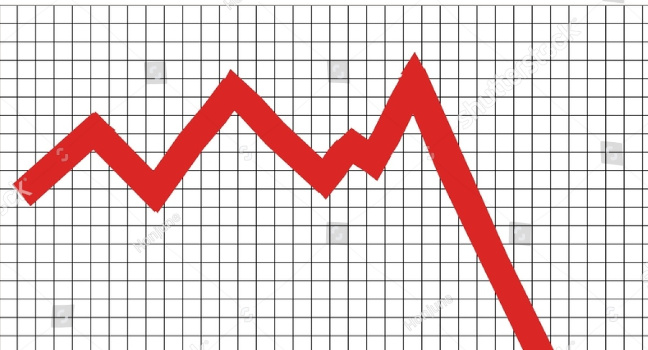Can you explain the logic behind not selling when stocks are going down?
When the price of stocks (or the value of mutual funds) begins to drop, some people feel it is in their best interest to sell their stocks and cut their loses. It’s an understandable reaction. No one wants to see their pool of money slowly draining. Selling off investments while the market is dropping in value seems like a reasonable way to stop the bleeding.
I will say in some circumstances it does make sense to sell. If you’re close to retirement, or will otherwise need the money currently invested in stocks or funds for something else, then it makes sense to sell. Someone who needs the money for retirement, a down payment on a house, or a medical procedure in the short-term should get their money out of falling investments and into a savings account. Not just because the market is going down, but because money that will definitely be needed in the short-term should be somewhere stable and accessible.
However, if you don’t need the money in the next two or three years then it makes sense to leave money in investments. Even when the market is dipping. Why? Well, there are two main reasons.
The first is that the stock market bounces up and down on a regular basis. What the market is doing today, yesterday, or tomorrow doesn’t matter. What does matter is the final price of stocks when you decide to cash out. As someone once said, the only prices which matter are when you first buy and finally sell, all the prices in between don’t mean anything.
The stock market jitters back and forth, dropping or rising every few days. On a short time line this can look unsettling. In the long-term though, the market goes up. Look at the market at almost any point in the past 75 years, then look ahead five or ten years from that point. The trend is upward. The small crests and valleys aren’t something to be worried about, because the overall trend is upward.
There isn’t much point in trying to jump out of the market and dive back in later because the over all trend is to rise. The only time you need to start worrying about the price of stocks is when you are planning to cash out (usually to retire) within the next five years.
The second reason to leave your investments alone is similar to the first: the short-term market is volatile. You may be looking at the price of stocks dropping and think it’s a good idea to sell. But if you do, then what if the market suddenly bounces back up? You’d be buying back in at a loss. Or what if the market does continue to fall for a while. When do you try to buy back in? Keeping in mind most stocks have little hops, little blips up or down almost every day. How are you going to time when the market has hit bottom and it’s time to start buying again?
Most people can’t time the market well enough to make money doing carefully timed buying and selling. Most people can’t accurately predict when we hit the bottom of a valley or the top of a wave. Even if they could, the taxes on gains (and RRSP cash outs) would eat up most of the profit.
Since trying to time when the market is going up or down in the short-term rarely works and since taxes and trading fees tend to eat up potential profits even when short-term buying and selling could work, the best option is to usually invest for the long-term. Put money into the market early and leave it there, ideally in diverse funds. Let it ride the short-term waves and dips. Don’t worry about the day to day rises and falls. Instead focus on where the market is likely to be ten, twenty, or thirty years from now when it’s time to cash out and retire. The price at that end goal is the only one you need to worry about.

Comments are closed, but trackbacks and pingbacks are open.